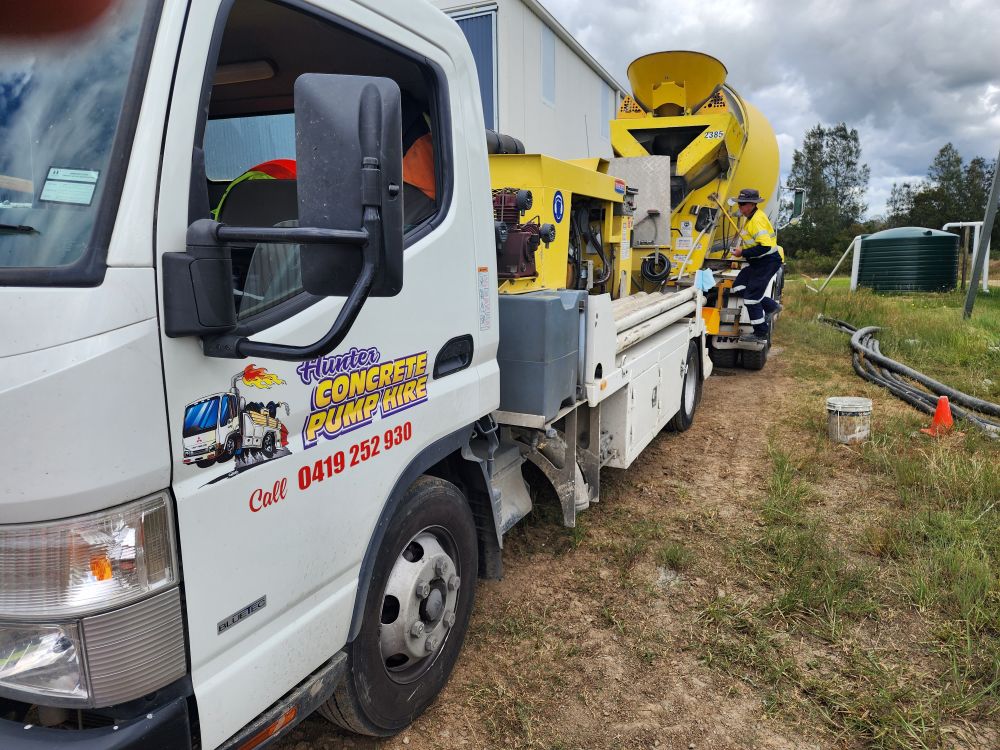Essential Strategies to Avoid Critical Errors When Hiring a Concrete Pump
To guarantee a seamless and successful concrete pouring experience, it is imperative to steer clear of any unnecessary delays and unexpected costs. This can be realised by selecting the right concrete pump, meticulously planning site access, and confirming the specific details of the pour. Even small oversights can lead to significant disruptions during concrete projects, potentially jeopardising both the timeline and budget of your undertaking. By investing time in these crucial considerations, you not only prevent potential headaches but also realise savings on additional expenses over time, culminating in a more efficient and economically viable project outcome.

1. How to Select the Most Appropriate Concrete Pump Type for Your Unique Project Requirements
The choice of the correct type of pump is greatly influenced by the unique dimensions and layout of your construction site. For example, line pumps are especially advantageous for residential projects involving driveways, footings, or circumstances where access to the site is limited. In contrast, boom pumps are specifically designed for larger commercial applications, such as expansive slabs, elevated pours, or large-scale sites. By thoroughly evaluating and identifying the appropriate pump type that is tailored to your specific project requirements, you can ensure that the concrete pour proceeds efficiently and smoothly, thereby reducing the risk of complications or delays.
2. The Importance of Accurately Estimating the Concrete Volume Required for Your Pour
Misestimating the required volume of concrete can lead to frustrating delays and the formation of cold joints within the material. If you underestimate the volume needed, you may find yourself needing additional mixes, while overestimating could result in waste and inflated costs. It is essential to meticulously measure the length, width, and depth of the pour area. If necessary, consult your concrete supplier for verification and assistance. This careful attention not only helps in avoiding unnecessary expenses but also guarantees that your project adheres to its timeline without unwanted interruptions.
3. How to Thoroughly Plan Site Access for Smooth Operations
When hiring a concrete pump, it is crucial to thoughtfully consider site access. Boom trucks require a stable ground surface, adequate overhead clearance, and ample space for the safe extension of their booms. Conversely, line pumps necessitate a clear pathway for the hose to extend from the pump to the pour location. For tighter residential projects, conducting a preliminary walk-through can help identify potential access challenges, thereby ensuring smoother and more efficient operations on the day of the pour, ultimately reducing the likelihood of issues arising on-site.
4. The Necessity of Timely Booking Arrangements to Secure Your Concrete Pump
It is essential to recognise that the most reputable operators often book out quickly, especially during peak construction seasons in regions such as Hunter and Newcastle. Delaying the securing of your pump hire significantly increases the risk of being without the essential equipment, which could result in costly delays in your project schedule. To avoid finding yourself in such a predicament, it is prudent to finalise your booking well in advance, facilitating a more streamlined project timeline and enhancing the overall efficiency of your operations.
5. Why Conducting a Comprehensive Site Visit is Essential
While sending photographs of the site can provide some insights, nothing compares to the invaluable advantages of a physical site visit. This brief on-site assessment enables you to pinpoint critical factors, such as hose routing needs, vehicle access points, suitable washout areas, and the distance from the truck to the slab. By proactively visiting the site, you can preemptively address any potential issues, ensuring a seamless and efficient concrete pouring process that meets all safety and operational standards.
6. Implementing an Effective Washout and Cleanup Strategy for Concrete Pumping
Concrete pumping inevitably produces waste, making it vital to devise a comprehensive washout plan. This plan should ensure that the slurry generated during the pumping process does not contaminate finished areas or obstruct any drainage systems. Most operators will inquire about your preferred washout location, so it is crucial to communicate your requirements clearly in advance to prevent any mishaps during the cleanup process, thus maintaining a tidy and safe working environment.
7. Confirming Labour Arrangements and Clarifying the Scope of Your Project
Before finalising your hire, always ensure that you verify what services are included in your rental package. Some agreements may only cover the operator, while others might encompass an entire crew. It is crucial to clarify whether the hired team will assist with tasks such as hosing, vibrating, or finishing the concrete. By understanding who is responsible for each aspect of the project prior to the arrival of the concrete, you can avoid misunderstandings and ensure that everything operates smoothly throughout the pouring process.
Why Opting for Hunter Concrete Pumps is the Best Choice for Mini Pump Hire
Hunter Concrete Pumps provides a straightforward and transparent hiring process, making it easier for you to obtain the support and equipment you need:
- Flat Rate Hiring Option: Take advantage of a competitive rate of $800 for the first load (covering up to 3 hours on-site), with an additional charge of $50 for each subsequent load.
- Hourly Rate Hiring Option: Opt for an hourly rate of $190 (with a minimum requirement of 3 hours), plus an additional $190 for travel and $6 per m³ pumped.
If you are uncertain about which equipment best suits your project needs, the dedicated team at Hunter Concrete Pumps is ready to assist you throughout your entire project. They can guide you in selecting the most appropriate pump, provide accurate estimates for your concrete volume, and even coordinate concrete supply along with experienced labour to ensure a hassle-free experience from start to finish.
Frequently Asked Questions About Concrete Pump Hiring
What is the most cost-effective option for hiring a concrete pump for a small project?
For smaller residential pours, a mini line pump usually represents the most economical choice. Hunter Concrete Pumps offers a flat-rate option starting at just $800 for the first load, making it an attractive option for customers who are budget-conscious and seeking value.
Can Hunter Concrete Pumps assist with coordinating my pour from start to finish?
Absolutely! Hunter Concrete Pumps is fully equipped to aid in selecting the right pump, estimating the necessary volume of concrete, arranging for timely delivery, and providing crew members to efficiently manage the hose and cleanup tasks. This comprehensive support ensures that your concrete pour is executed flawlessly.
Establishing Strong Relationships with Concrete Pumping Professionals
Hiring a concrete pump can be a straightforward process when you focus on the essentials: site access, accurate volume calculations, crew coordination, and timely bookings. By getting these foundational elements right, you can effectively avoid the common pitfalls that often delay projects and escalate costs. With the right team supporting you, your concrete pour can be executed flawlessly on the first attempt. This level of reliability is the reason why Hunter Concrete Pumps has built strong partnerships with numerous developers throughout Newcastle and the Hunter Region, ensuring high-quality results and customer satisfaction.
Concrete Pump Hire
The Article: Avoid These Common Hiring Mistakes for Concrete Pumps first appeared on https://writebuff.com
The Article Avoid Common Concrete Pump Hiring Mistakes Was Found On https://limitsofstrategy.com
The Article Concrete Pump Hiring Mistakes to Avoid found first on https://electroquench.com

